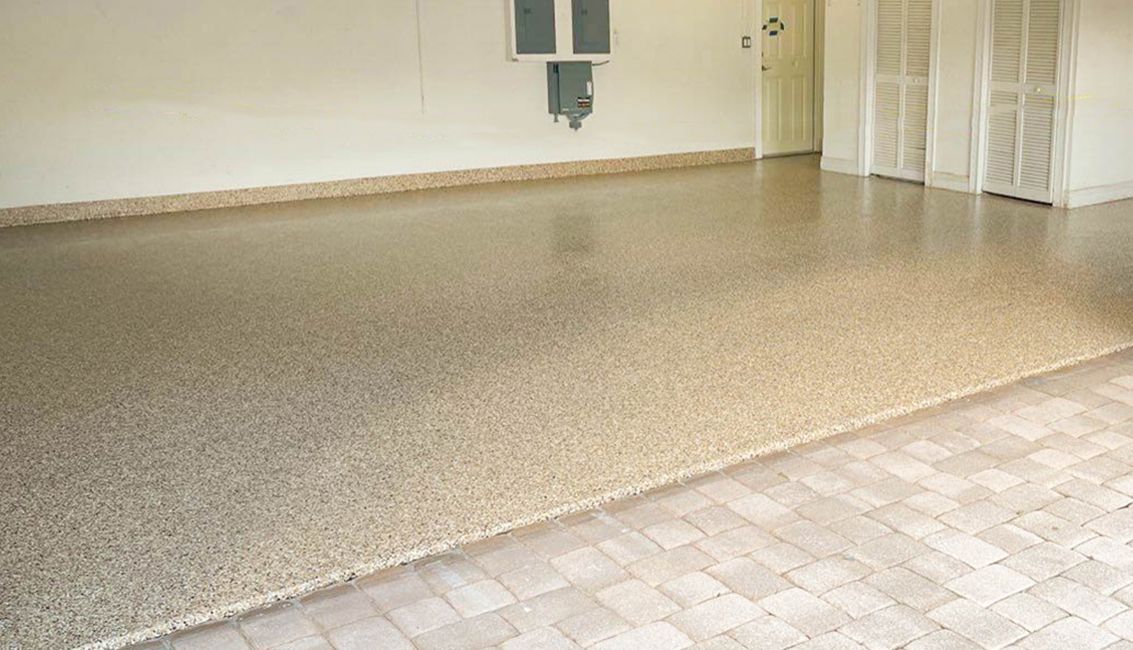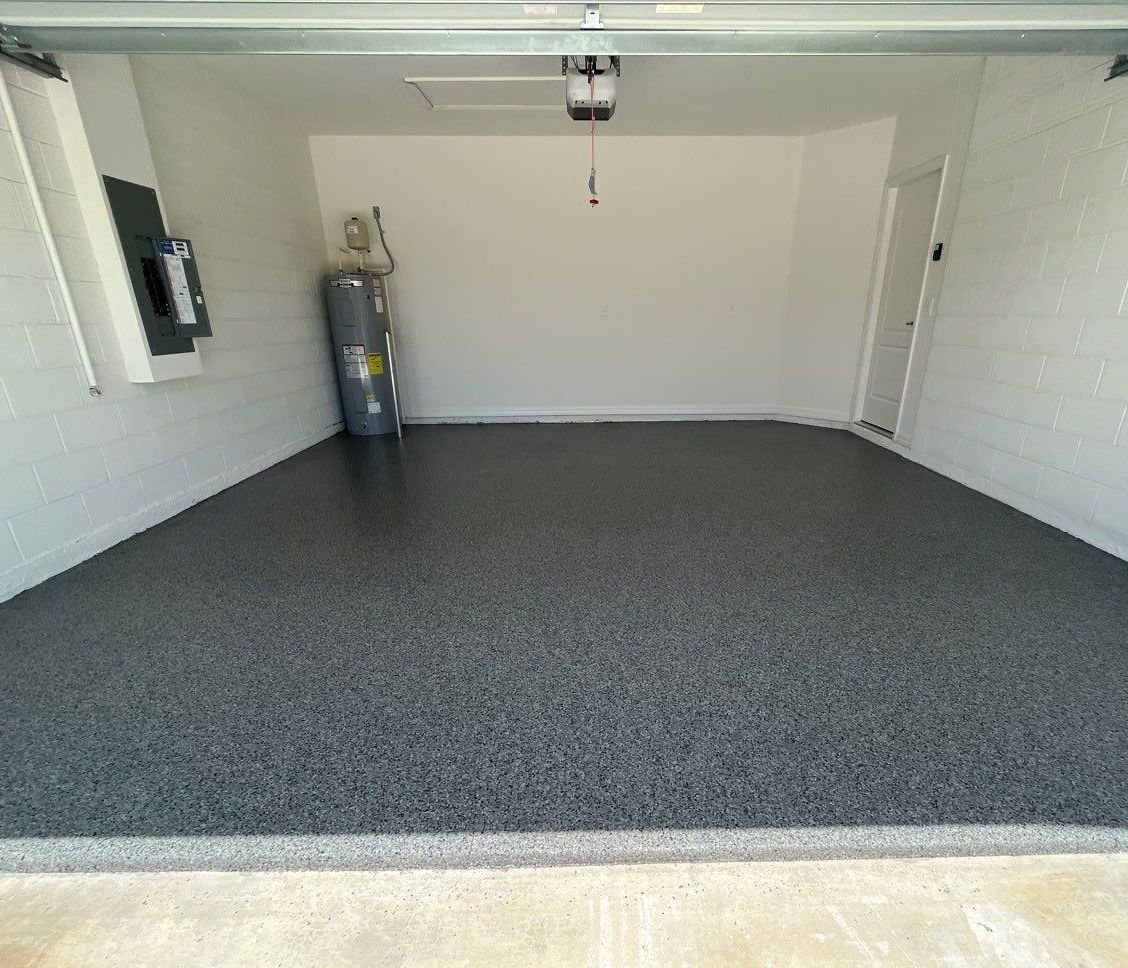Refinishing your garage floor can transform a dull and worn-out surface into a durable, attractive, and functional space. Whether you’re looking to enhance the aesthetics of your garage or improve its longevity, refinishing offers a range of benefits. In this comprehensive guide, we’ll explore everything you need to know about refinishing garage floors, from the different types of finishes to DIY tips and hiring professionals.

Introduction to Refinishing Garage Floors
Refinishing a garage floor involves applying a new coating or finish to the existing surface. This process not only revitalizes the appearance of the floor but also adds a layer of protection against stains, chemicals, and wear and tear. Additionally, refinishing can make the floor easier to clean and maintain over time.
Types of Garage Floor Finishes
There are several options available for refinishing garage floors, each with its own advantages and characteristics. Some popular choices include:
Epoxy Coatings
Epoxy coatings are known for their durability and resistance to chemicals, making them ideal for high-traffic areas like garages. They come in various colors and finishes, allowing for customization based on your preferences.
Polyurea Coatings
Polyurea coatings offer similar benefits to epoxy but with faster curing times, making them a convenient option for quick turnaround projects. They provide excellent abrasion and impact resistance, suitable for garage floors subjected to heavy use.
Polyaspartic Coatings
Polyaspartic coatings combine the durability of epoxy with even faster curing times, allowing for same-day installation and use. They are UV stable and highly resistant to yellowing, making them suitable for outdoor applications as well.
Stained Concrete
Stained concrete is a decorative option that enhances the natural beauty of the concrete while providing protection against stains and moisture. It offers a unique, mottled appearance that can complement various design styles.
Preparation Steps Before Refinishing
Before applying any finish, proper preparation is essential to ensure a successful result that lasts. This typically involves:
Cleaning the floor: Remove any dirt, grease, or existing coatings from the surface. Repairing cracks and imperfections: Fill in any cracks or holes in the concrete to create a smooth, even surface. Etching or grinding the surface: This step helps the new coating adhere better to the concrete substrate, ensuring long-lasting adhesion.
DIY vs. Professional Refinishing
When it comes to refinishing garage floors, homeowners have the option to tackle the project themselves or hire a professional contractor. Each approach has its own set of advantages and considerations:
DIY: DIY refinishing can be cost-effective and rewarding for those with the necessary skills and tools. However, it requires careful preparation and application to achieve professional-looking results. Professional: Hiring a professional contractor ensures a high-quality finish with minimal hassle. Professionals have the expertise and equipment to handle all aspects of the refinishing process, saving time and effort for the homeowner.
Step-by-Step Guide to DIY Garage Floor Refinishing
If you decide to refinish your garage floor yourself, follow these steps for a successful outcome:
Gathering materials and tools: Purchase the necessary supplies, including the chosen finish, cleaning solutions, epoxy primer, and application tools. Surface preparation: Thoroughly clean the floor and repair any cracks or damage. Applying the chosen finish: Follow the manufacturer’s instructions for mixing and applying the finish, ensuring even coverage. Curing and drying time: Allow the finish to cure and dry according to the recommended timeframe before using the garage.
Hiring a Professional for Garage Floor Refinishing
For those who prefer to leave the job to the experts, finding the right contractor is crucial. Consider the following factors when selecting a professional:
Experience and expertise: Choose a contractor with a proven track record of successful garage floor refinishing projects. References and reviews: Check online reviews and ask for references from past clients to ensure satisfaction with the contractor’s work. Quotes and estimates: Get quotes from multiple contractors and compare prices and services before making a decision.
Maintenance Tips for Refinished Garage Floors
To prolong the life and appearance of your refinished garage floor, follow these maintenance tips:
Regular cleaning routines: Sweep or mop the floor regularly to remove dirt, dust, and debris. Avoiding damage: Use furniture pads or mats to protect the floor from heavy objects and avoid dragging sharp or abrasive items across the surface. Touch-up and resealing: Periodically inspect the floor for signs of wear or damage and touch up any areas as needed. Consider resealing the floor every few years to maintain its protective properties.
Cost Considerations for Refinishing
The cost of refinishing a garage floor can vary depending on factors such as the chosen finish, the condition of the existing surface, and the size of the garage. Generally, DIY projects are more cost-effective, but hiring a professional may offer better long-term value in terms of durability and quality.
Conclusion
Refinishing your garage floor is a worthwhile investment that can enhance both the appearance and functionality of your space. Whether you choose to tackle the project yourself or enlist the help of a professional, proper preparation and maintenance are key to achieving lasting results that you can enjoy for years to come.



